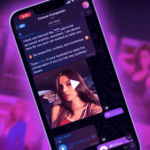
Mobile messaging apps are a dime a dozen. Chances are you have at least one installed on your phone, whether that be WhatsApp or Viber or LINE or Google Hangouts. BlackBerry is considered to be the originator of this category with BlackBerry Messenger, but they’ve only recently ported the service over to Android and iOS. Android being Android, BlackBerry couldn’t support every version of Google’s OS at launch, but that’s soon going to change. The company says that at some point next month, they’ll launch a version of BBM that supports Android 2.3 Gingerbread.
Why do this? Because BlackBerry is popular in parts of the world where people don’t have a lot of disposable income. A person’s first Android phone in a country like Nigeria or Indonesia is likely a $50 Chinese handset that doesn’t even have 3G or WiFi support. Said budget handset, because it’s so slow, can only run an ancient version of Android, hence the decision to bring BBM to Gingerbread.
Will doing this help BlackBerry regain some of the market share they’ve lost over the past few years? I honestly don’t know. People are very fickle. Unlike desktop social networks, mobile social networks all have the ability to tap into your address book. Switching between BBM, WhatsApp, and LINE takes all of 30 seconds to do, so staying loyal to one particular service doesn’t make any sense.
The bigger question is how is BlackBerry making money off BBM when they let it run on a no-name Android handset that was manufactured at one of the hundreds of factories in Shenzhen?


















